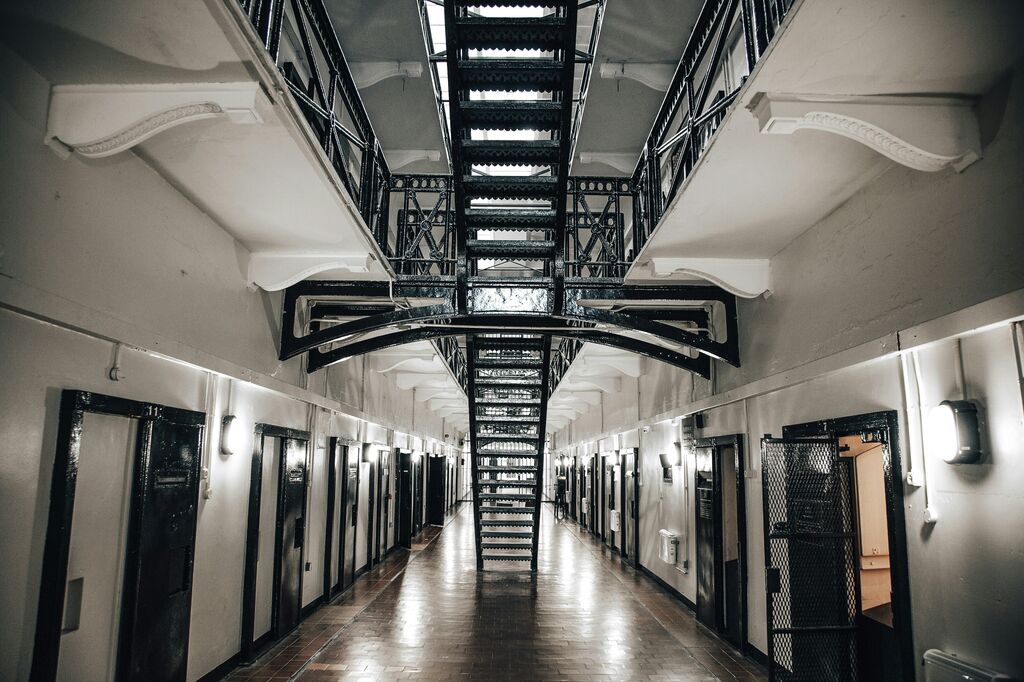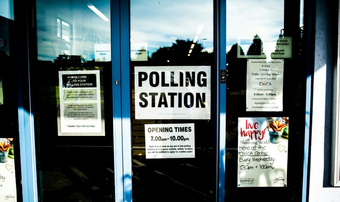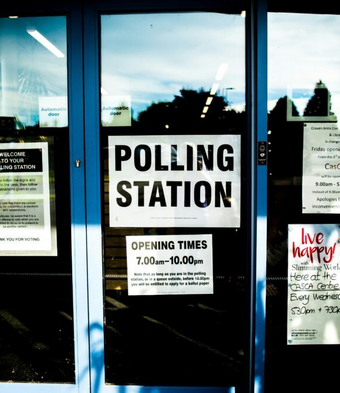Britain’s broken criminal justice system

Do you believe in a ‘tough’ approach to crime? Or are you more in favour of rehabilitation? Bar headlines at election time around which party can look harder on crime, we probably don't think about our prison system very much. But criminal justice is now back in the headlines again.
1,100 prisoners were released from prison early this week as part of the second round of emergency measures taken by the Labour Government to mitigate a crisis within the prisons system. (The previous round of early release saw 1,700 inmates released in September.) Eligible offenders who were serving more than five years but who had spent 40% of their sentence behind bars were released on license under the scheme. Those convicted of serious violence, sex crimes and terrorism are not eligible for early release.
Whilst it was the Labour Government’s decision to implement the scheme, the Institute for Government reports that this has been a crisis long in the making:
“Prisons in 2024 are in a state of emergency, but one that has been brewing for years. Successive justice secretaries and prime ministers have chosen not to address the drivers of the crisis; some have added to them. Since 2010, budgets have been cut and supply of places underdelivered, while sentences have continued to grow. And since at least 2020, the government’s own prison population projections have implied that prisons would suffer a severe capacity crisis without corrective. That did not happen.
As a result of this failure to manage capacity, the government was forced to take emergency measures in November 2023. The actions taken – over the last decade and particularly the last few years and months – have been profoundly inadequate. The crisis now facing the criminal justice system is one driven by sustained mismanagement, rather than unforeseen circumstances. It is a political and policy failure.”
Whilst this may only be entering the headlines now, the problems are longstanding, complicated, and under-reported. But it is now Labour’s problem to own and unfortunately for them, some released under the scheme are providing ample fodder for journalists to write negative headlines about Keir Starmer and the Government. Starmer, for his part, is keen to highlight the previous administration’s failures, which have sown the seeds for the current state of affairs:
"The Prime Minister shares the public's anger at these scenes and thinks it is shocking that any government should ever inherit the crisis that this government has when it comes to our prisons.
"But just to be clear, there was no choice not to act. If we had not acted, we would have faced a complete paralysis of the system.
"Courts unable to send offenders to prison, police unable to make arrests and unchecked criminality on our streets, so the Government clearly could not allow this to happen."
The Government has also announced a host of measures alongside the early release scheme to help address the crisis, which they hope will ultimately result in both reducing the need for prison spaces and increasing capacity within the prison system.
Britain’s criminal justice system is in a mess, and will take a long time to repair.
A lack of long-term wisdom
Like with many of the issues facing modern Britain, there has been a crucial lack of attention from successive governments and prime ministers to some of the key functions of the state.
Underlying issues have gone unaddressed, only making it into the news once a problem has blown up quite catastrophically. For the prison system, similarly read health and social care, military capacity, and house-building.
Every one of these government failures will have their own fallout. But what is particularly concerning about the state of our criminal justice system isn’t necessarily the immediate repercussions of releasing 1,100 offenders back into society (though it will be undoubtedly painful for their victims), but the appalling failure to take seriously one of the core, God-ordained functions of good government. Romans 13 sets it out clearly:
“For rulers hold no terror for those who do right, but for those who do wrong. Do you want to be free from fear of the one in authority? Then do what is right and you will be commended. For the one in authority is God’s servant for your good. But if you do wrong, be afraid, for rulers do not bear the sword for no reason. They are God’s servants, agents of wrath to bring punishment on the wrongdoer. Therefore, it is necessary to submit to the authorities, not only because of possible punishment but also as a matter of conscience.”
Government has a responsibility for ensuring just judgement in the land, as illustrated by its bearing of the sword. We see this not only in the New Testament but also way back in Deuteronomy 1, when Moses sets up governors over the people of Israel.
“Hear the disputes between your people and judge fairly, whether the case is between two Israelites or between an Israelite and a foreigner residing among you. Do not show partiality in judging; hear both small and great alike. Do not be afraid of anyone, for judgment belongs to God. Bring me any case too hard for you, and I will hear it.”
The legal academic and theologian, Jonathan Burnside, writes “how do we, as human persons, lay hold of justice? According to the Bible it is something that we learn to do as we grow in wisdom and character”. He then goes on to say, “because God is the source of justice, a right relationship with God was the prime quality required of an Israelite judge…true justice can be pursued only in context of a close relationship with God.”
Now, this is not to say that those who do not follow in the ways of the Lord are incapable of just judgements or just government. We believe in common grace and recognise that, as people made in the image of God, we are all capable of reflecting that perfect image to differing degrees. Nevertheless, a God-fearing government would take the criminal justice system seriously, recognising it is central to their God-given task.
Optimism or pessimism within the justice system
The newly-appointed Labour government have been thoroughly negative in their expectation management. Some argue that that is what the country needs after years of undelivered promises and cheap political slogans.
Others argue that we need an injection of hope and of optimism. They say that we need to look forward, to invest in the future, to be ambitious. To have a confidence in human innovation and ingenuity to solve the problems before our eyes.
Yet neither pessimism nor optimism offer a reliable path in and of themselves. It depends what they are built on. Positivity can drive forward innovation and offer hope, but naïve optimism grates and offers naught but hollow promises. We have had our fair share of positive bluster in recent years, and few have taken kindly to it.
Negativity can cut through naivety, and highlight issues others have missed. However, relentless negativity leads to despair, apathy and a hopelessness which charts no path through the malaise.
The cynics and dreamers both rightly recognise something about the truth of this world in which we live. The cynics, that this world is fallen, groaning with the birth pains of the world that is to come. The dreamers, that we live under common grace, that there is much good in the world for us to enjoy and a great many reasons for hope. But it is only when the two appear together that we reach wisdom, the ability to see the world as it really is, to recognise one’s place within it, and to know how to act accordingly.
Criminal justice is an area which exposes the false dichotomy well: naïve optimists fail to fully grasp our fallenness and our guilt, and see judgement and punishment as inherently oppressive, rather than a rightly-ordered use of authority.
But those who stress the punitive side of justice too much sometimes fail to recognise that, as Burnside writes, “justice in the Bible is not simply a matter of punishing people, but of putting things right” and can easily see a desire for right punishment spill over to revenge.
The way of wisdom, however, recognises both the necessity of judgement and the limits we should impose to make our judgements just.
Fixing our justice system
Without wrestling with the core purpose of government and the true state of our world, much discourse around criminal justice will settle on utilitarian and technocratic answers that fail to understand life as it truly is, and offer the route-forward that is convenient, rather than the path that is wise.
This is something I fear will be on display in the Gauke review. I long for it to ask good and deep questions which get to the foundations of our criminal justice system; but I fear it will all too easily overlook the important questions and simply focus on the financial and the mechanical.
A society in which criminal justice is dysfunctional and just judgements are lacking is one in which the strong and powerful can flourish, but the majority, and especially the vulnerable and the marginalised, suffer. (Crime has a disproportionately negative impact on poor and vulnerable communities, as outlined by organisations like the Centre for Social Justice.) A wise government will take its duty to bear the sword seriously, as ordained by God, so that all in society might flourish.
And beyond just needing wise government, we also need wise people. Part of the problem with criminal justice in this country is surely driven by our ‘you do you’ approach to morality; somehow we still expect public life to somehow muddle along in harmony and peaceful bliss. Theodore Darlymple writes, “no culture that makes publicly sanctioned self-indulgence its highest good can long survive”. Without a higher moral code, we are all liable to do what is right in our own eyes (as occurs in the book of Judges, with disastrous consequences).
It is not just our criminal justice system that is in need of reform: it is us ourselves. For as Michael Novak puts it:
“If a people composed of 100 million citizens is guarded by 100 million inner policemen—that is, by 100 million self-governing consciences-then the number of policemen on its streets may be few. For a society without inner policemen, on the other hand, there aren't enough policemen in the world to make society civil. Self-control is not authoritarianism but rather the alternative to it.”
Let us not seek to just have a wise government. Let us seek to be wise people. Only then, with the combination of the two, might we see a properly functioning system of justice in our land.






